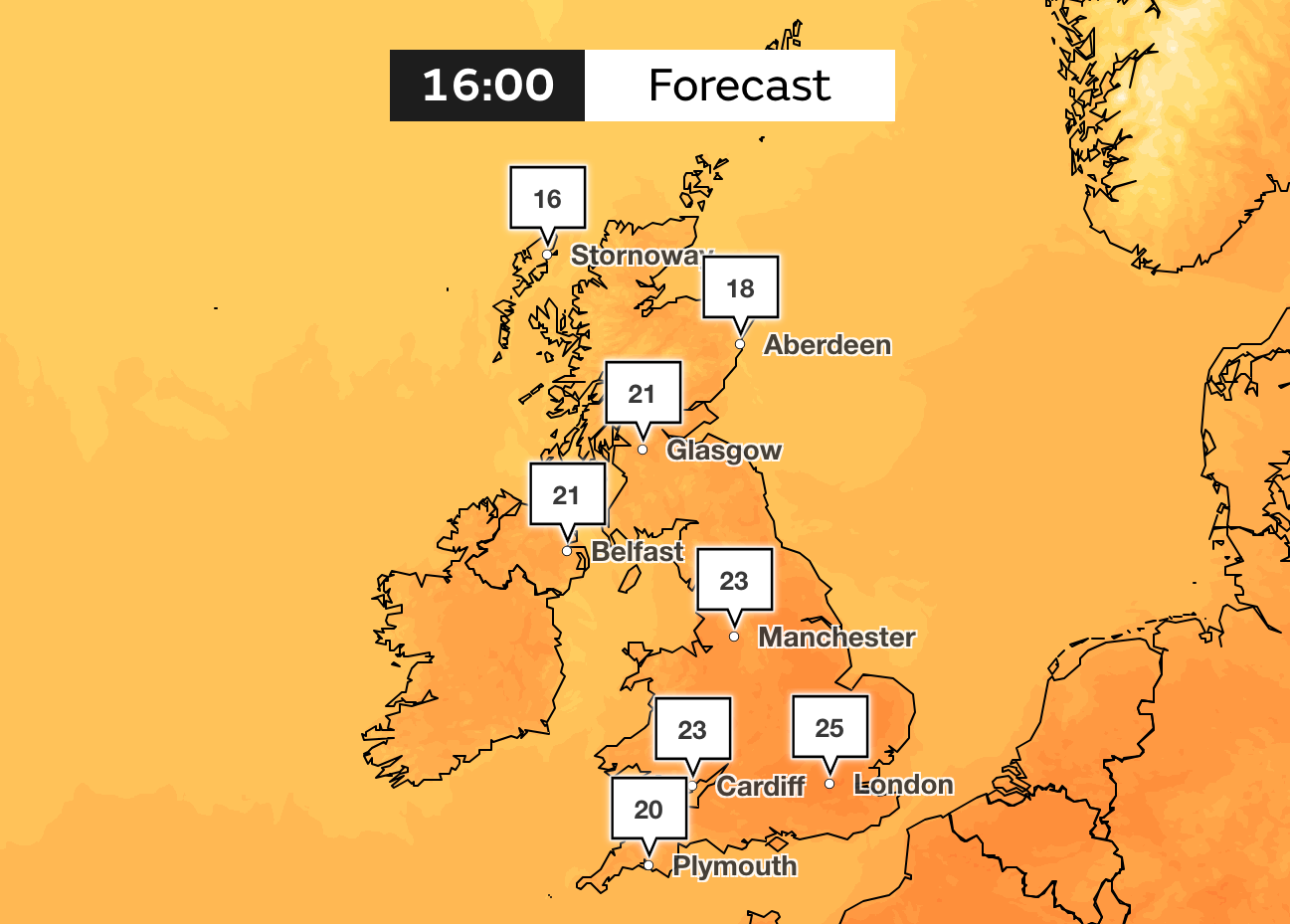How a heatwave affects your gut – and what you can do about it
The body responds to increases in external temperatures

Your support helps us to tell the story
This election is still a dead heat, according to most polls. In a fight with such wafer-thin margins, we need reporters on the ground talking to the people Trump and Harris are courting. Your support allows us to keep sending journalists to the story.
The Independent is trusted by 27 million Americans from across the entire political spectrum every month. Unlike many other quality news outlets, we choose not to lock you out of our reporting and analysis with paywalls. But quality journalism must still be paid for.
Help us keep bring these critical stories to light. Your support makes all the difference.
The connection between our gut and the weather can sometimes feel like a big old mystery.
But warmer weather – especially when there is a heatwave – can have a massive impact on our gut health.
So, is the heatwave affecting your gut, and how do you support its health during the summer months?
According to Carolina Goncalves, superintendent pharmacist at Pharmica, a heatwave can affect the gut in three main ways.
“Firstly, food safety risks can arise due to a reduction in the shelf life of food as a result of hotter daily temperatures. In particular, protein-based foods such as those containing meat tend to spoil faster than usual on hotter days, increasing the risk of bacterial growth and raising the risk of food-borne illnesses that may disrupt normal gut flora,” she said.

“Secondly, the body is less able to cool itself and maintain a regular temperature during a heatwave, especially if the individual exerts themselves physically through activities such as running or playing sports outdoors. The natural cooling mechanism of the body isn’t as efficient during a heatwave and can lead to a condition known as ‘heat stress’, which may trigger an inflammatory response in the gut.
“This inflammation can compromise the integrity of the gut lining, making it more permeable and allowing bacteria and toxins to enter the bloodstream more easily. This can potentially lead to systemic inflammation and further health complications.
“Dehydration is also more likely to occur during a heatwave and can exacerbate certain digestive issues such as constipation by reducing intestinal motility. This may disrupt the rate at which food is digested, resulting in inadequate nutrient absorption.”
Why do heatwaves impact the gut?
Heatwaves affect the gut because of how the body responds to increases in external temperatures.
“As the days get hotter, the body increasingly prioritises cooling itself over other physiological processes such as digestion by diverting blood from the gastrointestinal tract to the skin,” said Goncalves.
“This can trigger digestive issues such as slower digestion and exacerbate existing digestive conditions, prompting the need to take better care of one’s gut and potentially consider the use of treatments for conditions such as constipation, diarrhoea and IBS.”

Why do we sometimes lose our appetite during hot spells?
Have you ever noticed that you don’t have much of an appetite when you are on a beach holiday?
For nutritionist Mark Gilbert of The 1:1 Diet by Cambridge Weight Plan, there are a few main reasons why heat impacts our appetite.
“The body responds to hot weather by increasing circulation towards the surface of the skin. This allows heat to radiate away from the body, and this process is enhanced by sweating as water cools the skin and is a much better conductor of heat than air,” he said.
“However, at the same time, this process directs circulation and blood flow away from the digestive tract. This system requires a great deal of energy to digest food and that energy comes from the blood supply. So with less blood supply to the gut, the body deprioritises food somewhat.
“Warm conditions mean we don’t burn off as many calories trying to regulate our body temperature. The body literally ‘burns’ calories, which produces heat and one effect of that is it helps keep us warm. When it’s hot, we don’t need to partake in this activity to avoid getting cold.
“The body loses sweat and electrolytes (minerals like sodium, potassium, magnesium, etc). These minerals are crucial to thousands of essential functions in the body, many of which have to do with metabolising food. This may reduce appetite until normal electrolyte levels are re-established.”
What can help reduce the impact?
If you are in a very hot environment for an extended time, or you are exercising in the heat, it’s a good idea to add some salt to your water or preferred beverage.

“I would suggest one to two grams, depending upon how long you’ve been exposed to the heat, how much you sweat and how hot it is. If you drink a great deal of water without any salt, your kidneys may struggle to hold onto enough sodium (salt is made up of 40% sodium), so adding a bit can help you avoid feeling ill, dizzy or getting muscle cramps. Remember, this applies to “extended” periods in the heat and not an hour or two!” said Gilbert.
“Some people add a small amount of potassium, magnesium and perhaps even calcium, but it is mainly sodium that gets out of balance in the heat, and you should get expert advice if you want to add these other electrolytes in because – particularly with potassium – there can be potential dangers.”
Are there any particular foods you should stay away from?
Gilbert suggests staying away from large meals and that it is more about the quantity of food you eat rather than the sources.
“If you are not getting enough water (or other beverages besides alcohol), then you should avoid salty foods as, in the absence of enough water, this will put you at higher risk of dehydration,” he added.
“Fruit may be best because it contains easily absorbed electrolytes along with a moderate amount of sugar and contains a high percentage of water.”